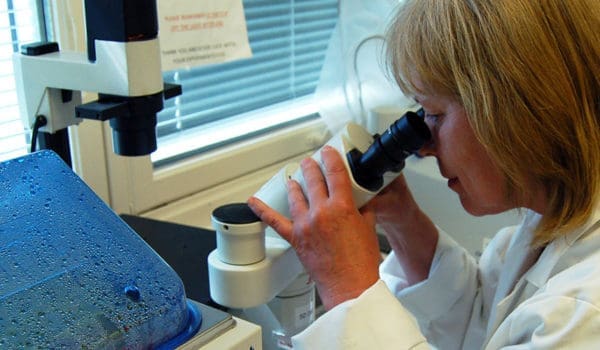We surround ourselves with more and more new chemicals, and are exposed daily to a vast amount of substances and mixtures of chemicals we do not really understand the effect of on an individual. We get in contact with these chemicals through food, clothes, cosmetics, furniture, air, water and other media.
Some of these chemical compounds have important properties, such as providing flame retardant substances in clothes, but they also have the potential to affect both the environment and human health.
The impact of these substances, but also the impact of chemical mixtures, requires better documentation and is an important part of NILU’s research agenda.
Outstanding in Norway
To investigate these effects, NILU has invested in a new health effect laboratory with focus on human toxicology. The laboratory is based on the comprehensive research of Dr Maria Dusinska at NILU, and is Norway’s only laboratory of its kind, offering quality assurance according to GLP (Good Laboratory Practice). The laboratory offers methods to examine if chemical compounds, nanoparticles, particles and mixtures, are toxic, genotoxic or carcinogenic, affecting the immune system and/or our genes.
Throughout history there have been many examples of chemical compounds that have been proven to be dangerous for health and environment. One of the most known examples is probably smoking and the addition of lead to gasoline.
Results from the health effects laboratory are used to assess the impact of emission of amines under the planned carbon capture at Mongstad, and TCM (Technology Centre Mongstad).
Societal benefit
It is important for society to identify the effects of these compounds before they are adopted, while at the same time society should be able make use of new technologogical developments as soon as possible. The laboratory will thus be able to contribute to making new chemicals and nanomaterials safely accessible for society.
The laboratory has extensive research activities going on, including participation in several European research projects. It is also providing industry and authorities with services, such as evaluation of safety of compounds and toxicity tests. The close connection to research ensures continuous access to the most modern and updated methods, which are being tested and validated through international project cooperation.
When testing for health effects, cell cultures (i.e., cells cultivated and contained in beakers/petri dishes) are being exposed to environmental compounds, micro particles or nanomaterials. The scientist observe if the cells change their behaviour, are damaged or even die.
These methods replace use of animal experiments and in addition reduce the time it takes to acquire results that demonstrate if certain substances or mixtures are harmful for human health.
Industrial partners that are cooperating with NILU’s health effects laboratory are assured that the products they are developing and selling are not harmful for human health and the environment. The laboratory will facilitate the options of using already existing methods, and where necessary adopt or develop new methods to study mechanisms and evaluate new substances. This also enables us to study new research questions.
